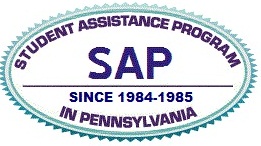Bullying Prevention Workshops
Bullying occurs with alarming frequency in all schools, sometimes with tragic consequences. Studies have shown a significant number of our children are bullied on a daily basis, interrupting attendance and academics. Bullying has long-term negative effects, not only on victims, but on bullies as well. Several studies have found that bullies identified by age 8 are much more likely to have serious criminal records by age 30. Students report that the majority of teachers and other educators are often unaware of and sometimes even ignore bullying incidents.
Every school has its own culture. To effectively address the issue of bullying, a school must examine their culture and determine if it creates a climate for bullying to occur and possibly even flourish. The Masonic Youth Foundation is pleased to sponsor training workshops for educators seeking to deal more effectively with these issues. During the workshops, educators will be given tools to evaluate their school culture and methods to confront the social norms that may encourage aggression and bullying.
These workshops, conducted by Deborah McCoy, of Educational Development Services, LLC, provide educators with an overview of bullying in schools and the research behind it. Deborah reviews interventions for students who bully, along with realistic solutions for students who are their targets. She gives practical strategies for implementing a bullying prevention and intervention program that can help create a safe learning environment for every student. A variety of very affordable and readily accessible resources are highlighted in the workshops.
Schedule
Student Assistance Program

The Masonic Youth Foundation continues a long-standing partnership between Pennsylvania Masons and the PA Department of Education’s Student Assistance Program (SAP). SAP is designed to assist school personnel in identifying alcohol, drug and other issues that pose a barrier to a student’s learning and school success.
Student assistance is not a treatment program. It is a systematic process using effective and accountable professional techniques to mobilize school resources to remove barriers to learning. When the problem is beyond the scope of the school, the Student Assistance Team will assist the parent and the student with information, so they can access services within the community.
The heart of the program is a professionally trained team, including school staff and liaisons from community agencies, who process issues based upon state guidelines, professional standards and policies and procedures adopted by the local school board of directors. Professional training for team members in all phases of SAP is required. The rigorous training of all team members, which results in a certificate from the approved training provider, assures the board of school directors, school administrators, parents, students and the public that team members have received up-to-date professional training consistent with accountable standards and appropriate professional practices.
Pennsylvania Masons have been involved almost since the beginning of SAP. Four school SAP teams participated in the very first team training in December 1984, and in the 1985-86 school year, the fraternity’s involvement with SAP began. For a significant period, SAP team trainings were conducted exclusively at the Masonic Conference Center – Patton Campus, in Elizabethtown. Currently, all secondary school buildings are required to provide SAPs, and the team trainings are conducted by Commonwealth Approved Training Providers throughout the state. While SAP teams are no longer trained exclusively at Patton Campus, the Masonic Youth Foundation helps fund the Commonwealth Approved Training System and various other SAP-related programs for educators throughout the Commonwealth. Our partnership with the PA Department of Education’s SAP remains strong and is the cornerstone of our prevention efforts.






